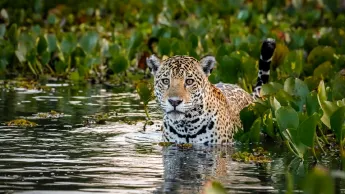Socio-economic shocks and their impacts on large carnivores

VIRTUAL COFFEE BREAK (Recording)
Language: English
Large carnivores are ecologically, economically, and socially important but they are also among the most threatened species worldwide. They face numerous threats, most importantly habitat loss and fragmentation, prey depletion, and illegal hunting, all of which could be exacerbated by socio-economic shocks such as wars, pandemics, political regime shifts, and financial crises. However, the mechanisms through which such shocks threaten large carnivores are unclear.
In this talk, Ranjini Murali presents a social-ecological systems framework to understand the impacts of socio-economic and political shocks – defined as events that can cause sudden and structural changes in social-ecological systems – on large carnivores. She will illustrate this framework using three cases developed using expert workshops and case-specific literature reviews:
1) impacts of economic sanctions on the Asiatic cheetah (Acinonyx jubatus venaticus) in Iran,
2) impacts of global commodity price shocks on the jaguar (Panthera onca) in Bolivia, and
3) impacts of the collapse of the Soviet Union on the snow leopard (P. uncia) in Kyrgyzstan.
The framework serves to create a common language for understanding relationships between shocks and large carnivores, in different social-economic settings. Ranjini Murali discusses the commonalities and differences between the case studies, highlighting the linkages between carnivore conservation and the global economy at the levels of states and communities. The cases underscore the need to proactively create resilient institutions focused on intrinsic motivations for conservation, local capacity building, and enhancement of social stability to secure the future of large carnivores in turbulent times. Join us for a talk and discussion with Humboldtian Ranjini Murali!
